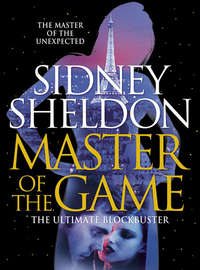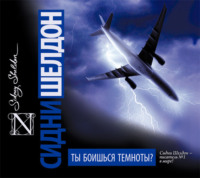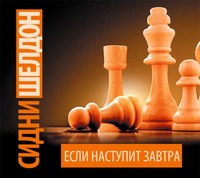
Полная версия
The Doomsday Conspiracy
She eyed him suspiciously. “What do you want with him?”
Robert gave her a winning smile. “You must be Mrs. Beckerman.” He pulled out his reporter's identification card. “I'm doing a magazine article on Swiss bus drivers, and your husband was recommended to my magazine as having one of the finest safety records in the country.”
She brightened and said proudly, “My Hans is an excellent driver.”
“That's what everyone tells me, Mrs. Beckerman. I would like to do an interview with him.”
“An interview with my Hans for a magazine?” She was flustered. “That is very exciting. Come in, please.”
She led Robert into a small, meticulously neat living room. “Wait here, bitte. I will get Hans.”
The house had a low, beamed ceiling, dark wooden floors, and plain wooden furniture. There was a small stone fireplace and lace curtains at the windows.
Robert stood there thinking. This was not only his best lead, it was his only lead. “People come in off the street, buy their ticket, and take the tour. We don't ask for identification. …” There's no place to go from here, Robert thought grimly. If this doesn't work out, I can always place an ad: Will the seven bus passengers who saw a weather balloon crash Sunday please assemble in my hotel room at oh twelve hundred tomorrow. Breakfast will be served.
A thin, bald man appeared. His complexion was pale, and he wore a thick, black mustache that was startlingly out of keeping with the rest of his appearance. “Good afternoon, Herr—?”
“Smith. Good afternoon.” Robert's voice was hearty. “I've certainly been looking forward to meeting you, Mr. Beckerman.”
“My wife tells me you are writing a story about bus drivers.” He spoke with a heavy German accent.
Robert smiled ingratiatingly. “That's right. My magazine is interested in your wonderful safety record and—”
“Scheissdreck!” Beckerman said rudely. “You are interested in the thing that crashed yesterday afternoon, no?”
Robert managed to look abashed. “As a matter of fact, yes, I am interested in discussing that too.”
“Then why do you not come out and say so? Sit down.”
“Thank you.” Robert took a seat on the couch.
Beckerman said, “I am sorry I cannot offer you a drink, but we do not keep schnapps in the house anymore.” He tapped his stomach. “Ulcers. The doctors cannot even give me drugs to relieve the pain. I am allergic to all of them.” He sat down opposite Robert. “But you did not come here to talk about my health, eh? What is it you wish to know?”
“I want to talk to you about the passengers who were on your bus Sunday when you stopped near Uetendorf at the site of the weather-balloon crash.”
Hans Beckerman was staring at him. “Weather balloon? What weather balloon? What are you talking about?”
“The balloon that—”
“You mean the spaceship.”
It was Robert's turn to stare. “The … spaceship?”
“Ja, the flying saucer.”
It took a moment for the words to sink in. Robert felt a sudden chill. “Are you telling me that you saw a flying saucer?”
“Ja. With dead bodies in it.”
“Yesterday, in the Swiss Alps, a NATO weather balloon crashed. There were some experimental military objects aboard the balloon that are highly secret.”
Robert tried hard to sound calm. “Mr. Beckerman, are you certain that what you saw was a flying saucer?”
“Of course. What they call a UFO.”
“And there were dead people inside?”
“Not people, no. Creatures. It is hard to describe them.” He gave a little shiver. “They were very small with big, strange eyes. They were dressed in suits of a silver metallic color. It was very frightening.”
Robert listened, his mind in a turmoil. “Did your passengers see this?”
“Oh, ja. We all saw it. I stopped there for maybe fifteen minutes. They wanted me to stay longer, but the company is very strict about schedules.”
Robert knew the question was futile before he even asked it. “Mr. Beckerman, would you happen to know the names of any of your passengers?”
“Mister, I drive a bus. The passengers buy a ticket in Zurich, and we take a tour southwest to Interlaken and then northwest to Bern. They can either get off at Bern or return to Zurich. Nobody gives their names.”
Robert said desperately, “There's no way you can identify any of them?”
The bus driver thought for a moment. “Well, I can tell you there were no children on that trip. Just men.”
“Only men?”
Beckerman thought for a moment. “No. That's not right. There was one woman too.”
Terrific. That really narrows it down, Robert thought. Next question: Why the hell did I ever agree to this assignment? “What you're saying, Mr. Beckerman, is that a group of tourists boarded your bus at Zurich, and then when the tour was over, they simply scattered?”
“That's right, Mr. Smith.”
So there's not even a haystack. “Do you remember anything at all about the passengers? Anything they said or did?”
Beckerman shook his head. “Mister, you get so you don't pay no attention to them. Unless they cause some trouble. Like that German.”
Robert sat very still. He asked softly, “What German?”
“Affenarsch! All the other passengers were excited about seeing the UFO and those dead creatures in it, but this old man kept complaining about how we had to hurry up to get to Bern because he had to prepare some lecture for the university in the morning …”
A beginning. “Do you remember anything else about him?”
“No.”
“Nothing at all?”
“He was wearing a black overcoat.”
Great. “Mr. Beckerman, I want to ask you for a favor. Would you mind driving out with me to Uetendorf?”
“It's my day off. I am busy with—”
“I'll be glad to pay you.”
“Ja?”
“Two hundred marks.”
“I don't—”
“I'll make it four hundred marks.”
Beckerman thought for a moment. “Why not? It's a nice day for a drive, nicht?”
They headed south, past Luzern and the picturesque villages of Immensee and Meggen. The scenery was breathtakingly beautiful, but Robert had other things on his mind.
They passed through Engelberg, with its ancient Benedictine monastery, and Brünig, the pass leading to Interlaken. They sped past Leissigen and Faulensee, with its lovely blue lake dotted with white sailboats.
“How much farther is it?” Robert asked.
“Soon,” Hans Beckerman promised.
They had been driving for almost an hour when they came to Spiez. Hans Beckerman said, “It is not far now. Just past Thun.”
Robert felt his heart beginning to beat faster. He was about to witness something that was far beyond imagination, alien visitors from the stars. They drove through the little village of Thun, and a few minutes later, as they neared a grove of trees across the highway, Hans Beckerman pointed and said, “There!”
Robert braked to a stop and pulled over to the side of the road.
“Across the highway. Behind those trees.”
Robert felt a growing sense of excitement. “Right. Let's have a look.”
A truck was speeding by. When it had passed, Robert and Hans Beckerman crossed the road. Robert followed the bus driver up a small incline into the stand of trees.
The highway was completely hidden from sight. As they stepped into a clearing, Beckerman announced, “It is right there.”
Lying on the ground in front of them were the torn remains of a weather balloon.
Chapter Eight
I’m getting too old for this, Robert thought wearily. I was really beginning to fall for his flying-saucer fairy tale.
Hans Beckerman was staring at the object on the ground, a confused expression on his face. “Verfalschen! That is not it.”
Robert sighed. “No, it isn't, is it?”
Beckerman shook his head. “It was here yesterday.”
“Your little green men probably flew it away.”
Beckerman was stubborn, “No, no. They were both tot—dead.”
Tot—dead. That sums up my mission pretty well. My only lead is a crazy old man who sees spaceships.
Robert walked over to the balloon to examine it more closely. It was a large aluminum envelope, fourteen feet in diameter, with serrated edges where it had ripped open when it crashed to earth. All the instruments had been removed, just as General Hilliard had told him. “I can't stress enough the importance of what was in that balloon.”
Robert circled the deflated balloon, his shoes squishing in the wet grass, looking for anything that might give him the slightest clue. Nothing. It was identical to a dozen other weather balloons he had seen over the years.
The old man still would not give up, filled with Germanic stubbornness. “Those alien things … They made it look like this. They can do anything, you know.”
There's nothing more to be done here, Robert decided. His socks had gotten wet walking through the tall grass. He started to turn away, then hesitated, struck by a thought. He walked back to the balloon. “Lift up a corner of this, will you?”
Beckerman looked at him a moment, surprised. “You wish me to raise it up?”
“Bitte.”
Beckerman shrugged. He picked up a corner of the lightweight material and lifted it while Robert raised another corner. Robert held the piece of aluminum over his head while he walked underneath the balloon toward the center. His feet sank into the grass. “It's wet under here,” Robert called out.
“Of course.” The Dummkopf was left unsaid. “It rained all yesterday. The whole ground is wet.”
Robert crawled out from under the balloon. “It should be dry.” “Crazy weather,” the pilot said. “Sunny here Sunday.” The day the balloon crashed. “Rainy all day today and clearing tonight. You don't need a watch here. What you really need is a barometer.”
“What?”
“What was the weather like when you saw the UFO?”
Beckerman thought for a moment. “It was a nice afternoon.”
“Sunny?”
“Ja. Sunny.”
“But it rained all day yesterday?”
Beckerman was looking at him, puzzled. “So?”
“So if the balloon was here all night, the ground under it should be dry—or damp, at the most, through osmosis. But it's soaking wet, like the rest of this area.”
Beckerman was staring. “I don't understand. What does that mean?”
“It could mean,” Robert said carefully, “that someone placed this balloon here yesterday after the rain started and took away what you saw.” Or was there some saner explanation he had not thought of?
“Who would do such a crazy thing?”
Not so crazy, Robert thought. The Swiss government could have planted this to deceive any curious visitors. The first stratagem of a cover-up is disinformation. Robert walked through the wet grass scanning the ground, cursing himself for being a gullible idiot.
Hans Beckerman was watching Robert suspiciously. “What magazine did you say you write for, mister?”
“Travel and Leisure.”
Hans Beckerman brightened. “Oh. Then I suppose you will want to take a picture of me, like the other fellow did.”
“What?”
“That photographer who took pictures of us.”
Robert froze. “Who are you talking about?”
“That photographer fellow. The one who took pictures of us at the wreck. He said he would send us each a print. Some of the passengers had cameras, too.”
Robert said slowly, “Just a moment. Are you saying that someone took a picture of the passengers here in front of the UFO?”
“That's what I am trying to tell you.”
“And he promised to send you each a print?”
“That's right.”
“Then he must have taken your names and addresses.”
“Well, sure. Otherwise, how would he know where to send them?”
Robert stood still, a feeling of euphoria sweeping over him. Serendipity, Robert, you lucky sonofabitch! An impossible mission had suddenly become a piece of cake. He was no longer looking for seven unknown passengers. All he had to do was find one photographer. “Why didn't you mention him before, Mr. Beckerman?”
“You asked me about passengers.”
“You mean he wasn't a passenger?”
Hans Beckerman shook his head. “Nein.” He pointed. “His car was stalled across the highway. A tow truck was starting to haul it away, and then there was this loud crash, and he ran across the road to see what was happening. When he saw what it was, the fellow ran back to his car, grabbed his cameras, and came back. Then he asked us all to pose in front of the saucer thing.”
“Did this photographer give you his name?”
“No.”
“Do you remember anything about him?”
Hans Beckerman concentrated. “Well, he was a foreigner. American or English.”
“You said a tow truck was getting ready to haul his car away?”
“That's right.”
“Do you remember which way the truck was headed?”
“North. I figured he was towing it into Bern. Thun is closer, but on Sunday, all the garages in Thun are closed.”
Robert grinned. “Thank you. You've been very helpful.”
“You won't forget to send me your article when it's finished?”
“No. Here's your money and an extra hundred marks for your great help. I'll drive you home.” They walked over to the car. As Beckerman opened the door, he stopped and turned toward Robert.
“That was very generous of you.” He took from his pocket a small rectangular piece of metal, the size of a cigarette lighter, containing a tiny white crystal.
“What's this?”
“I found it on the ground Sunday before we got back on the bus.”
Robert examined the strange object. It was as light as paper and was the color of sand. A rough edge at one end indicated that it might be part of another piece. Part of the equipment that was in the weather balloon? Or part of a UFO?
“Maybe it will bring you luck,” said Beckerman, as he placed the bills Robert had given him in his wallet. “It certainly worked for me.” He smiled broadly and got into the car.
It was time to ask himself the hard question: Do I really believe in UFOs? He had read many wild newspaper stories about people who said they had been beamed up into spaceships and had had all kinds of weird experiences, and he had always attributed those reports to people who were either looking for publicity or who should have thrown themselves on the mercy of a good psychiatrist. But in the past few years, there had been reports that were less easy to dismiss. Reports of UFO sightings by astronauts, Air Force pilots, and police officials, people with credibility, who shunned publicity. In addition there had been the disturbing report of the UFO crash at Roswell, New Mexico, where the bodies of aliens had purportedly been discovered. The government was supposed to have hushed that up and removed all the evidence. In World War II, pilots had reported strange sightings of what they called Foo fighters, unidentified objects that buzzed them and then disappeared. There were stories of towns visited by unexplainable objects that had come speeding through the sky. What if there really are aliens in UFOs from another galaxy? Robert wondered. How would it affect our world? Would it mean peace? War? The end of civilization as we know it? He found himself half hoping that Hans Beckerman was a raving lunatic, and that what had crashed was really a weather balloon. He would have to find another witness either to verify Beckerman's story or to refute it. On the surface, the story seemed incredible, but yet, there was something nagging at Robert. If it was only a weather balloon that crashed, even if it did carry special equipment, why was I called into a meeting at the National Security Agency at six o'clock in the morning and told that it was urgent that all the witnesses be found quickly? Is there a cover-up? And if so … why?
Chapter Nine
Later that day, a press conference was held in Geneva in the austere offices of the Swiss Ministry of Internal Affairs. There were more than fifty reporters in the room and an overflow crowd outside in the corridor. There were representatives from television, radio, and the press from more than a dozen countries, many of them loaded down with microphones and television gear. They all seemed to be speaking at once.
“We've heard reports that it was not a weather balloon …”
“Is it true that it was a flying saucer?”
“There are rumors that there were alien bodies aboard the ship …”
“Was one of the aliens alive?”
“Is the government trying to hide the truth from the people? …”
The press officer raised his voice to regain control. “Ladies and gentlemen, there has been a simple misunderstanding. We get calls all the time. People see satellites, shooting stars … Isn't it interesting that reports of UFOs are always made anonymously? Perhaps this caller really believed it was a UFO, but in actuality it was a weather balloon that fell to the ground. We have arranged transportation to take you to it. If you will follow me, please …”
Fifteen minutes later, two busloads of reporters and television cameras were on their way to Uetendorf to see the remains of a weather-balloon crash. When they arrived, they stood in the wet grass surveying the torn metallic envelope. The press officer said, “This is your mysterious flying saucer. It was sent aloft from our air base in Vevey. To the best of our knowledge, ladies and gentlemen, there are no unidentified flying objects that our government has not been able to explain satisfactorily, nor to our knowledge, are there any extraterrestrials visiting us. It is our government's firm policy that if we should come across any such evidence, we would immediately make that information available to the public. If there are no further questions …”
Chapter Ten
Hangar 17 at Langley Air Force Base in Virginia was locked in complete and rigid security. Outside, four armed marines guarded the perimeter of the building, and inside, three high-ranking Army officers stayed on alternate watches of eight hours each, guarding a sealed room inside the hangar. None of the officers knew what he was guarding. Besides the scientists and doctors who were working inside, there had been only three visitors permitted in the sealed chamber.
The fourth visitor was just arriving. He was greeted by Brigadier General Paxton, the officer in charge of security. “Welcome to our menagerie.”
“I've been looking forward to this.”
“You won't be disappointed. Come this way, please.”
Outside the door of the sealed room was a rack containing four white, sterile suits that completely covered the body.
“Would you please put one on?” the general asked.
“Certainly.” Janus slipped into the suit. Only his face was visible through the glass mask. He put large white slippers over his shoes, and the general led him to the entrance of the sealed room. The marine guard stepped aside, and the general opened the door. “In here.”
Janus entered the chamber and looked around. In the center of the room was the spaceship. On white autopsy tables at the other side lay the bodies of the two aliens. A pathologist was performing an autopsy on one of them.
General Paxton directed the visitor's attention to the spaceship.
“We're dealing here with what we believe to be a scout ship,” General Paxton explained. “We're sure it has some way of communicating directly with the mother ship.”
The two men moved closer to examine the spacecraft. It was approximately thirty-five feet in diameter. The interior was shaped like a pearl, had an expandable ceiling, and contained three couches that resembled recliner chairs. The walls were covered with panels containing vibrating metal disks.
“There's a lot here we haven't been able to figure out yet,” General Paxton admitted. “But what we've already learned is amazing.” He pointed to an array of equipment in small panels. “There's an integrated wide-field-of-view optical system, what appears to be a life-scan system, a communication system with voice-synthesis capability, and a navigational system that, frankly, has us stumped. We think it works on some kind of electromagnetic pulse.”
“Any weapons aboard?” Janus asked.
General Paxton spread out his hands in a gesture of defeat. “We're not sure. There's a lot of hardware here we don't begin to understand.”
“What is its source of energy?”
“Our best guess is that it uses monoatomic hydrogen in a closed loop so that its waste product, water, can be continuously recycled into hydrogen for power. With all that perpetual energy, it has a free ride in interplanetary space. It may be years before we solve all the secrets here. And there's something else that's puzzling. The bodies of the two aliens were strapped into their couches. But the indentations in the third couch indicate that it was occupied.”
“Are you saying,” Janus asked slowly, “that one may be missing?”
“It certainly looks that way.”
Janus stood there a moment frowning. “Let's have a look at our trespassers.”
The two men walked over to the tables where the two aliens lay. Janus stood there staring at the strange figures. It was incredible that things so foreign to humanity could exist as sentient beings. The foreheads of the aliens were larger than he had expected. The creatures were completely bald, with no eyelids or eyebrows. The eyes resembled Ping-Pong balls.
The doctor performing the autopsy looked up as the men approached. “It's fascinating,” he said. “A hand has been severed from one of the aliens. There's no sign of blood, but there are what appear to be veins that contain a green liquid. Most of it has drained out.”
“A green liquid?” Janus asked.
“Yes.” The doctor hesitated. “We believe these creatures are a form of vegetable life.”
“A thinking vegetable? Are you serious?”
“Watch this.” The doctor picked up a watering can and sprinkled water over the arm of the alien with a missing hand. For a moment, nothing happened. And then suddenly, at the end of the arm, green matter oozed out and slowly began to form a hand.
The two men stared, shocked. “Jesus! Are these things dead or not?”
“That's an interesting question. These two figures are not alive, in the human sense, but neither do they fit our definition of death. I would say they're dormant.”
Janus was still staring at the newly formed hand.
“Many plants show various forms of intelligence.”
“Intelligence?”
“Oh, yes. There are plants that disguise themselves, protect themselves. At this moment, we're doing some amazing experiments on plant life.”
Janus said, “I would like to see those experiments.”
“Certainly. I'll be happy to arrange it.”
The huge greenhouse laboratory was in a complex of government buildings thirty miles outside of Washington, D.C. Hanging on the wall was an inscription that read:
The maples and ferns are still uncorrupt,
Yet, no doubt, when they come to consciousness,
They too, will curse and swear.
—Ralph Waldo Emerson
Nature, 1836
Professor Rachman, who was in charge of the complex, was an earnest gnome of a man, filled with enthusiasm for his profession. “It was Charles Darwin who was the first to perceive the ability of plants to think. Luther Burbank followed up by communicating with them.”
“You really believe that is possible?”
“We know it is. George Washington Carver communed with plants, and they gave him hundreds of new products. Carver said, ‘When I touch a flower, I am touching Infinity. Flowers existed long before there were human beings on this earth, and they will continue to exist for millions of years after. Through the flower, I talk to Infinity …’”








